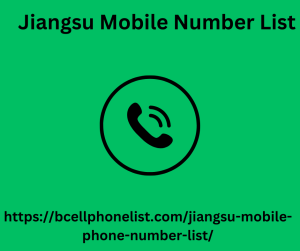|
|
It was very wise to choose to use the Android system at that time. On the one hand, building a self-made operating system requires investing a lot of resources and time for polishing. On the other hand, the ecosystem has no motivation to add additional The cost of adapting a new operating system is increased, and in the business world, the cost is calculated. So why did Huawei later turn to its own operating system? Because the United States does not allow Huawei to use Android, to be precise, it cannot use the latest version of Android.
This is a precise neck-stuck tactic, and the effect is very obvious. Huawei had to spin off Honor, and the market shrank. Although the market still very much recognizes Huawei's mobile phones, and their advantages such Jiangsu Mobile Number List as good signal are still outstanding, but no one wants to use an operating system that is not advanced enough, right? In addition, as the United States suppresses Huawei, developers of various applications that run on the operating system are also in trouble. I wonder if iOS and Android systems will one day not be open to Chinese developers. Compared with investing part of the cost to system,

the former is directly fatal. Since the operating system is so important and application developers are willing to co-build the Hongmeng system, it is natural for Huawei to do this. 2. Can Huawei’s Hongmeng system be built? When asking this question, I can't help but think that even a powerful company like Microsoft has failed in the mobile operating system. Can Huawei do it? There are factors for success. The right time, right place and right people are all working together. We first need to review why Microsoft failed in the mobile operating system。
|
|
